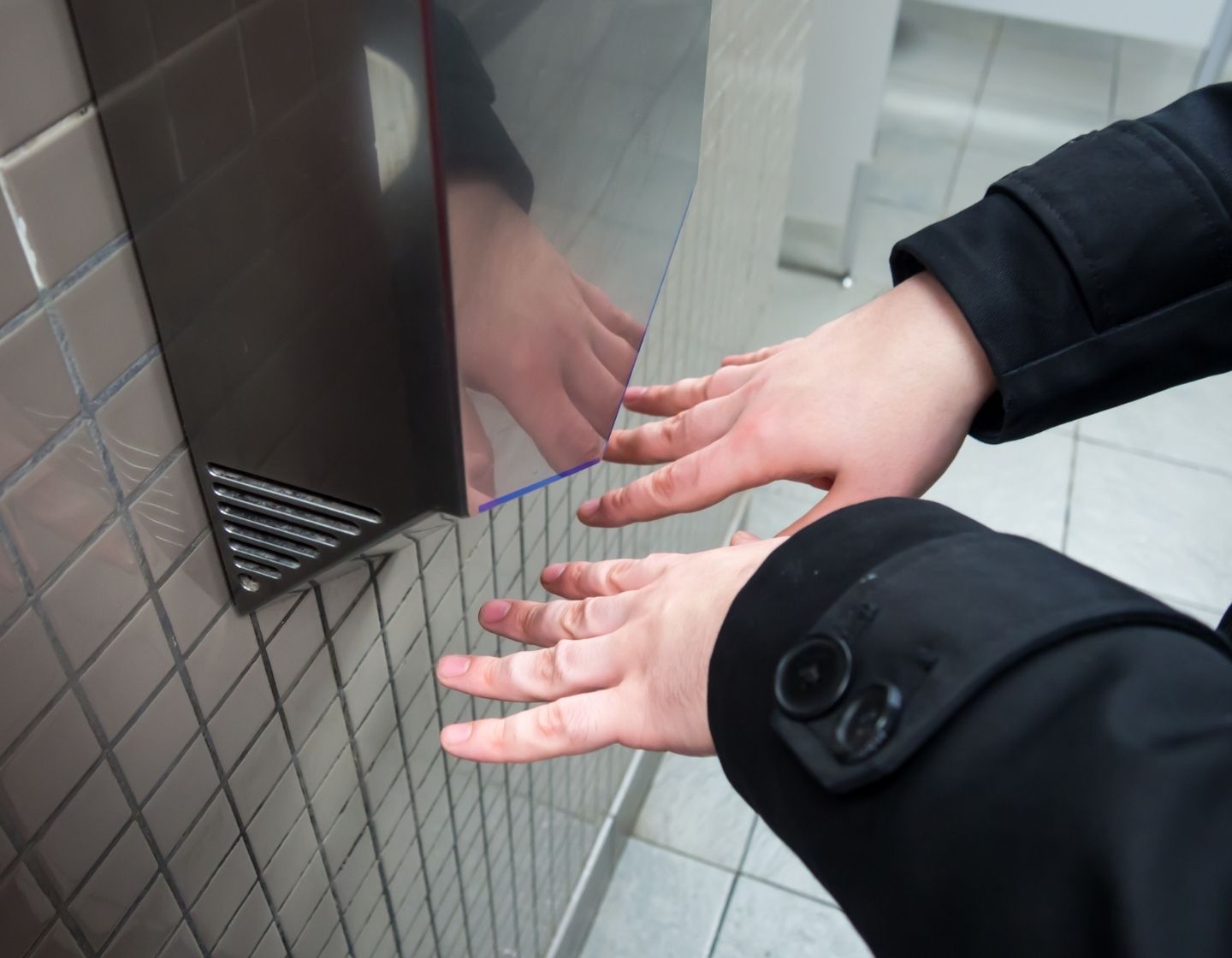Myth busting: hand dryer hygiene and costs
The myths around hand dryer hygiene and the best ways to ensure a clean washroom have been around for a very long time.
These myths have clouded the information needed to make the right decision about what hand-drying facilities to provide people when they use the washroom. The need for clarity is needed now more than ever, as we pull away from the past two years of the pandemic.
We’re all much more conscious of spread of viruses and germs in public areas, and we’ve become more habituated to washing our hands more thoroughly. Drying them fully is recognised as being a crucial part of that process.
The debate around hand dryers and paper towels has been trundling on for years. To be honest, it really doesn’t matter much in terms of general hygiene. What’s more important is washing hands with soap and water for 20 seconds, and drying them fully.
Germ-spreaders
Hands that are fully dried by an effective hand dryer will definitely spread fewer bugs than hands that have been given a quick wipe with a paper towel, leaving them damp and perfect for germ-spreading.
Stories surface occasionally about hand dryers compared to paper towels when measuring bacterial removal and spread. Unfortunately, many of the studies underlying the stories are funded by the paper sector and also suffer from small sample sizes and questionable methodology.
Companies like Dyson take time and effort to rebut these accounts. UK studies about the spread of bacteria through Dyson hand dryers have been robustly answered by the company. It advises that its dryers are “as hygienic” as paper towels and points to the fact that the Royal Society for Public Health endorsed Dyson hand dryers after exhaustive tests and the company carries the RSPH hygiene kitemark.

Hand dryer economy
It’s not only hygiene, hand dryers are also better for the environment and much more economical than paper towels. There is more than enough good research data now to show the negative impact of power towels on the environment. For example, it takes 17 trees to produce a tonne of towels.
Add to that environmental/climate cost from the endless task of collecting, storing and transporting the waste paper for disposal in landfill or for incineration. Paper towels are an expensive solution for drying hands. They cost thousands of £s each year in purchase, cleaning, maintenance and disposal.
Unfortunately, It is not possible in general to recycle paper towels, particularly those made with recycled paper. Less paper waste is also great for the climate, cutting CO2 emissions by up to 79%.
For washroom managers, there is the ongoing challenge of monitoring the towel dispensers, keeping them filled and emptying the wastebaskets. It’s not easy in a well-used washroom to ensure cleanliness and hygiene, with the number of towels discarded on the floor, often ending up as a sludgy mess.

Blocked drains
There’s an additional and costly issue with paper towels – people flush them down the toilets, which can often lead to blocked drains. In fact, at the University of Tennessee, a facilities manager reported savings of $100,000 every year by not having to plumb and unclog toilets.
The Massachusetts Institute of Technology has also carried out research which indicates that recycled paper towels actually have the same negative impact on the environment as virgin paper towels, including water consumption and carbon emissions. The study also showed that installing a hand dryer would save 24 trees over its working life that would otherwise be turned into paper towels.
Hand dryers are a washroom winner and the Velair Pebble Plug & Play Hand Dryer range is a great choice – very economical and environmentally friendly. The cost of annual energy usage is around £6 compared to paper towels costing of £375.00 – that’s a 98% saving. The Pebble has a low environmental impact, producing 90% less CO2 than other dryers and has a drying time of just 12 seconds.
And take a look at our range of Dyson hand drying solutions.